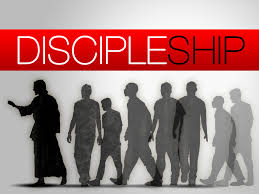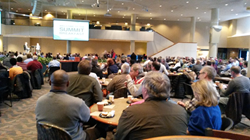“I am convinced that there has never been an ordinary child born on this planet, ever!!! But, most of us die painfully, tragically ordinary. Somewhere between when we are born and when we die, our extraordinary nature is beat out of us, lost to us.”
– Erwin McManus
While that quote might sound negative to you, the first part of it is really great news. Imagine for a moment that the first part is true; that every single person on this planet is born as an extraordinary child. Isn’t that an awesome, uplifting thought? The older I get and the more I experience of life and people, the more convinced I become that the first part of that quote is true.
However, the second part of that quote reminds us of the reality that if we are not good stewards of the extraordinary, we risk losing it, or at least masking it, or minimizes the expression of it.
What motivates me is that the flipside of this is also true. If we are good stewards, if we dedicate ourselves to unleashing the extraordinary masterpiece that was already present inside of us and others at birth, we can live extraordinary lives. We can change the future – change the world. Our lives and the lives of those around us can become stories worth telling.
But what does it take? What makes the difference between having our extraordinary nature beat out of us or having it unleashed to the fullest? I believe that it all boils down to how we value ourselves. Do we value ourselves for being or for doing? Do we measure our own worth by who we are, or for what we do, what we accomplish?
Please don’t confuse the message here. There is nothing wrong with doing. In fact, doing is the tangible expression of being. But if the doing does not flow out of a proper sense of being, we can lose our being all together – we can lose our extraordinary nature.
We must learn to value ourselves for who we are, and express who we are in the things we do. We must measure our worth, and just as importantly, measure the worth of others, by who they ARE, not what they do. When we value ourselves for who we are, we can begin to unleash the extraordinary masterpiece that has been born inside of us.
When we value others, and measure their worth for who they are, we begin to unleash the extraordinary masterpiece inherent inside of them – and slowly but surely, person by person, interaction by interaction, we can make our world a better place. We can create a better future for everyone within the sphere of our influence.
How can we practically value ourselves for being? Well, I have a simple acrostic that helps me – B.E.I.N.G.
- The “B” stands for “Believe the best.” Believe the best about yourselves and about others. See the best in yourself and in others. Expect the best. Envision the best. I need to come alongside someone as they dream, and work with them to make their dreams a reality. Believing the best does not mean excusing bad behavior, or eliminating healthy boundaries – quite the opposite. It is expecting the best in others and not settling for less.
- “E” reminds me to “Encourage myself and others.” The word encourage literally means “to breathe courage into.” What a cool concept. To breathe courage into yourself and others – the courage it takes to be the best you that you can be. When I and those around me fall short, we encourage each other to do better. Encourage also means “to develop.” I need to continually invest in myself and others to fully develop our individual masterpieces.
- “It is in you!” is the “I”. You may remember the popular Gatorade commercial would ask the question, “Is it in you?” Of course, they mean, is Gatorade in you? Gatorade is what propels you and enables you to be the best athlete you can be, and you need to pour it in from the outside – and keep adding it as your internal supply runs low. My extraordinary nature is already in me and can never be consumed – it can never run low or run out. It can be hidden, but it can never be taken out of you. I don’t have to do anything to be extraordinary. It is what I AM. It is what you ARE. We should carry ourselves as such. We should act extraordinary – expect the extraordinary.
- “N” is for “Never give up!” We are going to make mistakes. The people closest to us will let us down from time to time. Extraordinary does not mean I never blow it, it means that I have extraordinary persistence and tenacity. I will not let mistakes get in the way of my masterpiece. Failure is one of the best methods of learning we have available to us. We need to leverage mistakes and failures as a launch pad for an extraordinary impact. I am reminded of a famous quote from Winston Churchill,
“Never give in, never give in, never; never; never; never – in nothing, great or small, large or petty – never give in except to convictions of honor and good sense”
- “Go intentionally!”. Finally, the “G” reminds us that BEING is an intentional act. I desire to go into every situation with the intention of seeing and enabling the extraordinary in everyone I touch. I want to intentionally change the environment around me – I want to create an aura of the extraordinary. My intentions should be to unleash the extraordinary masterpiece in everyone I meet. We should desire to move the masterpiece needle at least one notch closer to fully unleashed for every person we interact with. How awesome would it be to be intentional about every conversation in every situation we find ourselves in?
I am already extraordinary. You are already extraordinary. It is already in us. We just need to realize it, develop it, express it – in ourselves and in others. Value yourself and others for you you are. Start with BEING. Express who you are by DOING.
Let’s start a revolution of extraordinary!! It starts with me (and you), moves out from there though those closest to us and then grows exponentially through everyone we have influence over!









